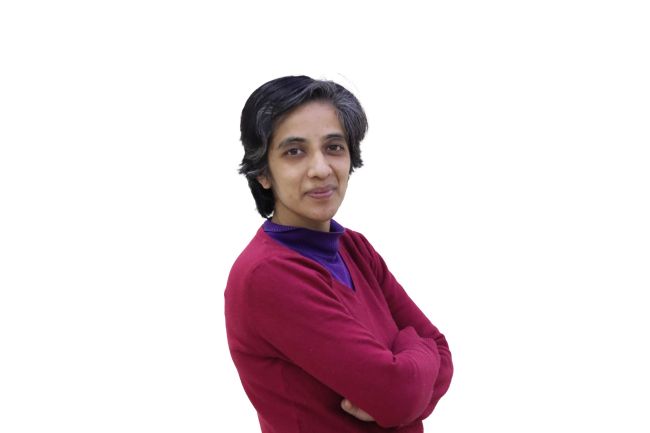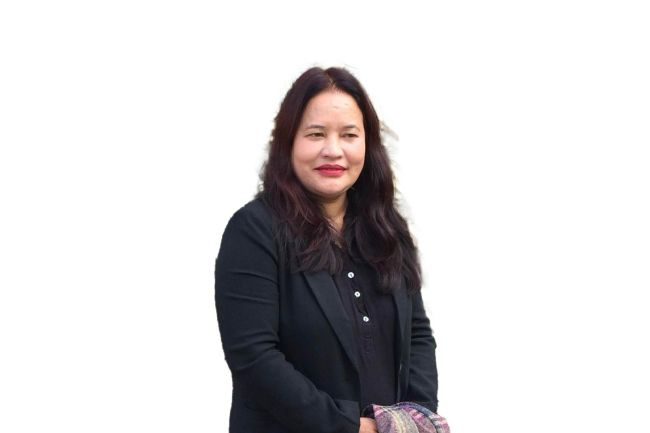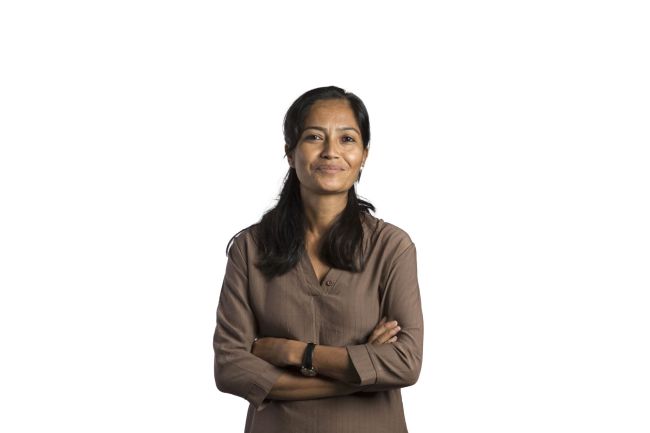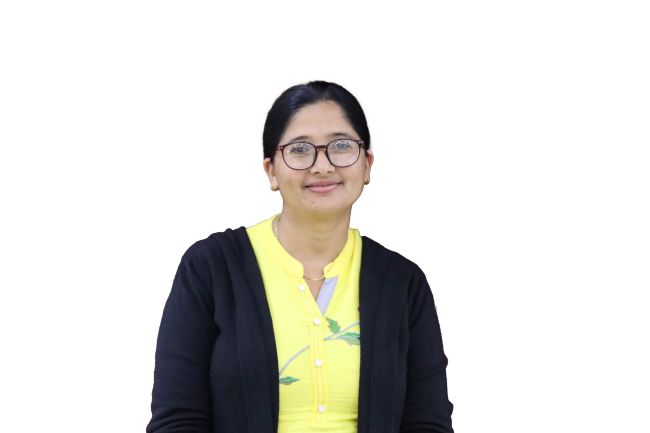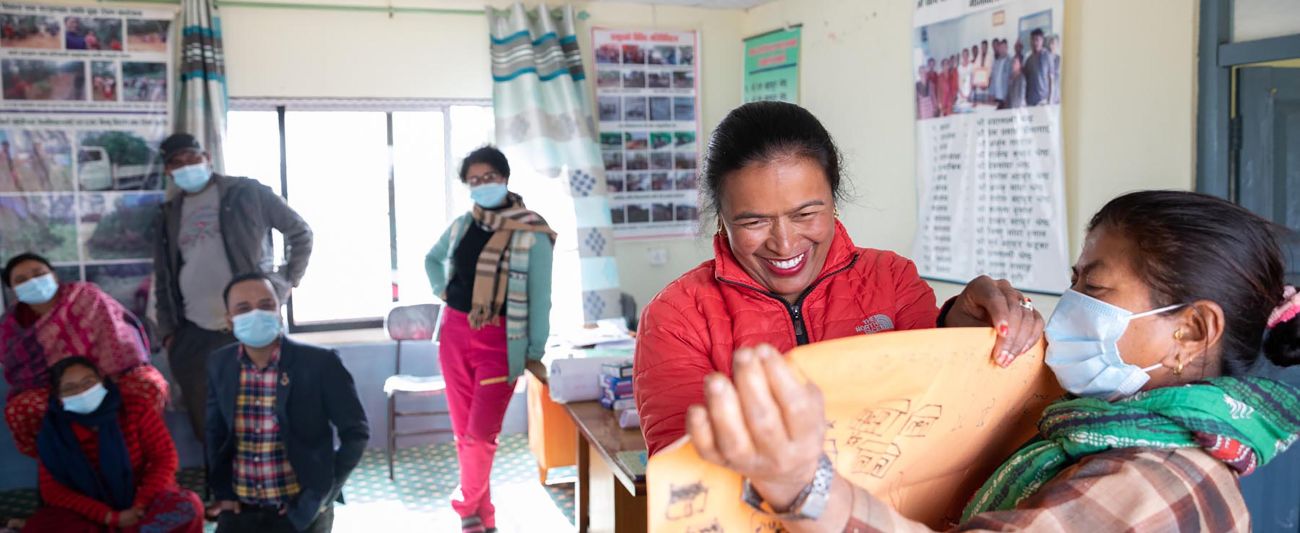
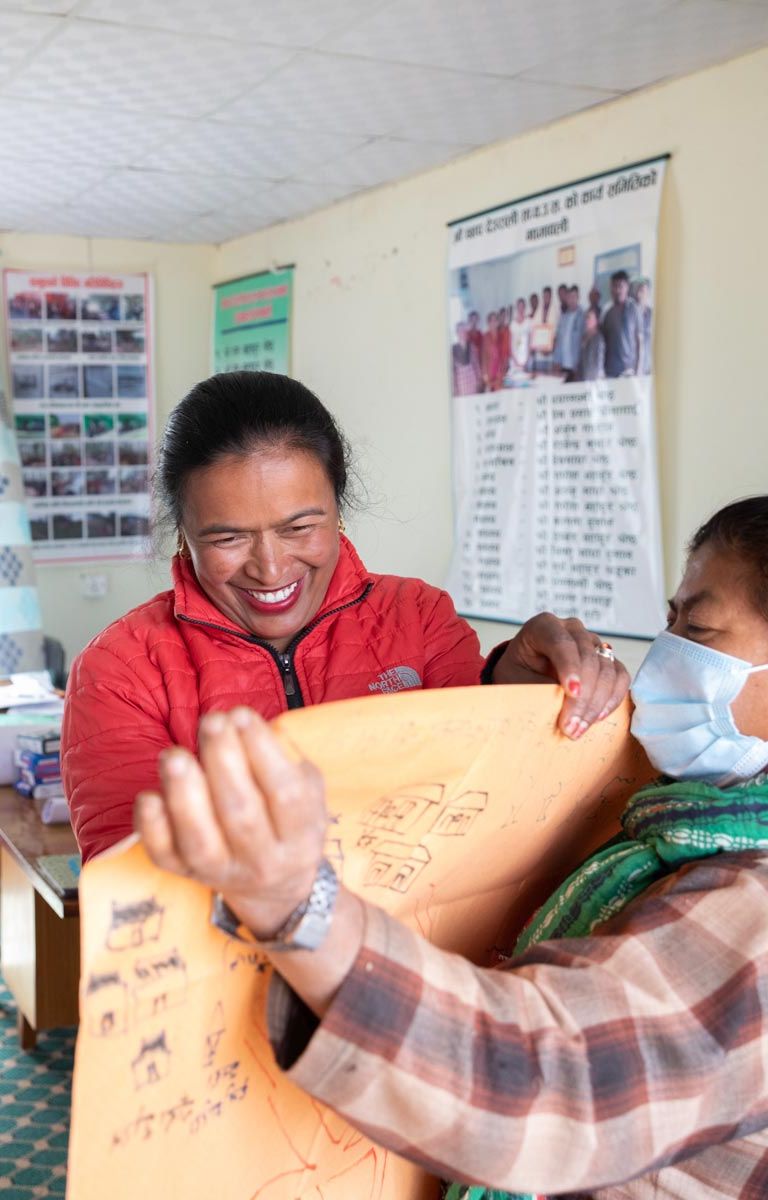
Soon after becoming the gender officer at the National Trust for Nature Conservation (NTNC) in Nepal, in September 2021, Reetu Deuba was invited to join a training program for young women working in the forestry sector. The training, by the Female Foresters’ Network and RECOFTC Nepal, gave her a fresh perspective. Back at work, she noticed key gaps in her organization’s gender policy.
“Although the gender policy was in place, and NTNC considers gender equality and social inclusion as its cross-cutting themes, integrating gender considerations in the organization's conservation work was a low priority,” says Deuba. “NTNC did not have enough gender-specific programs or budget. And the gender policy had a lot of loopholes. The training helped me to see these gaps and realise that I could try to close them.”
Feeling empowered, Deuba proposed and received approval from the organization's board to amend the policy. Through consultation with RECOFTC Nepal’s director Shambhu Dangal, she revised the policy and added a gender code of conduct and an action plan. The policy demonstrates NTNC's commitment to gender integration and will contribute to creating a more inclusive and equitable working environment.
Deuba is just one of many women who had an impact as a result of RECOFTC Nepal’s recent drive to develop gender leadership in the country’s forestry sector. This work has included supporting gender champions, addressing gaps in media coverage and helping women to progress, both as professionals in the forestry sector and as managers of community forests.
These activities are offshoots of a regional RECOFTC initiative called Weaving Leadership for Gender Equality, or WAVES, which ran from 2019 to 2022.
WAVES built and supported a network of gender leaders involved in forestry in government ministries, civil society organizations, academia, the media and local communities. This included seven leaders in Nepal.
Among them was Deepa Oli, a forest officer with the Ministry of Forests and Environment. Taking part in the WAVES initiative gave her new insights about how to address workplace harassment issues prevalent in forestry. “I never realized how powerful it is to be organized and be able to use multiple lenses to analyse and articulate gender issues, and to use different strategies to influence the leadership,” she says. “You actually get heard and are taken seriously.”
Click image to meet WAVES gender leaders in Nepal
A network reborn
In March 2020, Oli and two other WAVES gender leaders in the Ministry, called Saraswati Aryal and Srijana Shrestha, began to revitalize the Female Foresters’ Network. They had set up the informal network earlier, before joining the WAVES initiative, and it still only had a few members. But it quickly gained credibility by being active on social media and providing a series of well-attended webinars during the COVID-19 lockdown.
In November 2021, with support from RECOFTC Nepal the network launched a Gender Leadership Accelerator Program to increase its membership and support a cohort of female forestry professionals. Over the following year, the program trained a group of 30 young women who call themselves Team 30. Participants attended webinars on gender issues in forestry and training for professional development. This equipped the women with knowledge and skills in gender advocacy and equality, and empowered them to become leaders and change-makers in their respective organizations.
Beeju Poudyal was working at non-governmental organization SeedTree Nepal when she joined Team 30. She is now an assistant professor and gender focal point at the Agriculture and Forestry University’s Faculty of Forestry. In her new role, she coordinated the faculty’s hosting of a training event that RECOFTC Nepal organized under its program Gender in Academia, and encouraged students to take part.
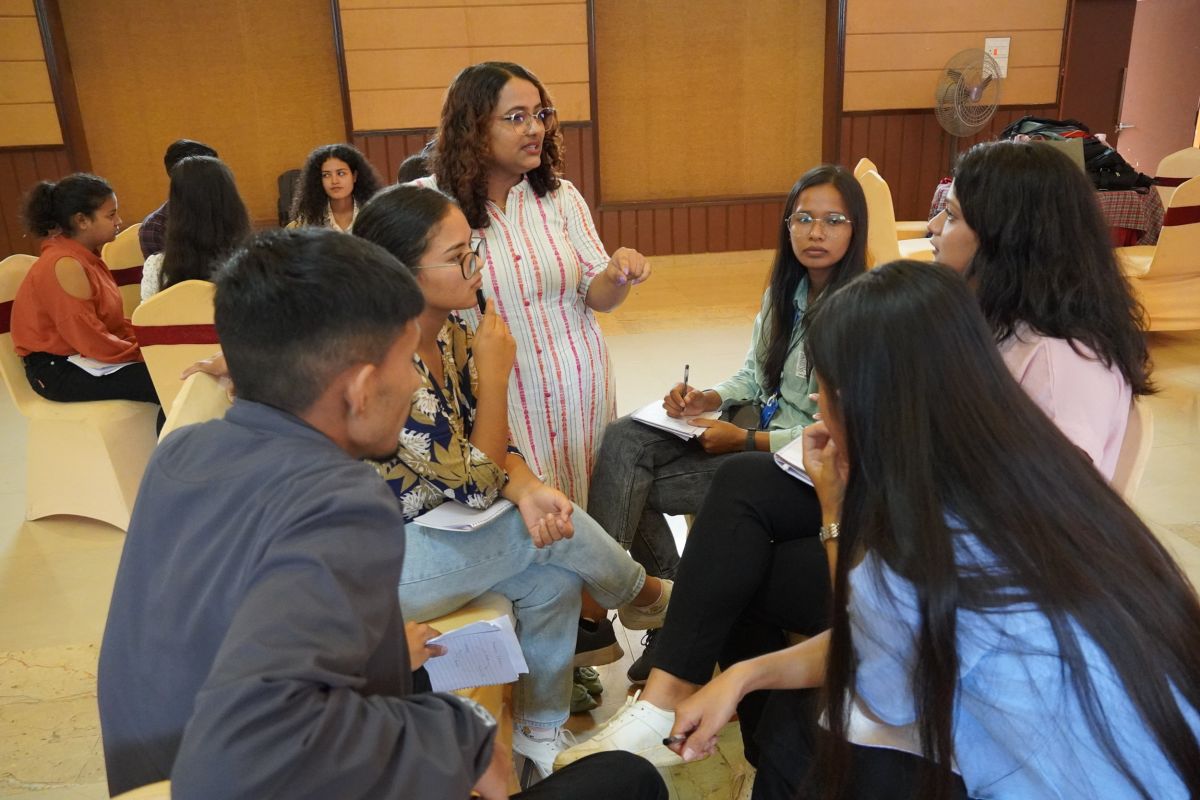
“Gender inequalities and sexual discrimination harm the educational and career prospects of young women foresters in Nepal’s universities,” says Poudyal. “The training event brought female and male students together to learn about biases, stereotypes and the fundamentals of gender equality. They are better placed now to identify and address discrimination when it occurs. This is key to ensuring that women have equal opportunities to learn and to develop professionally.”
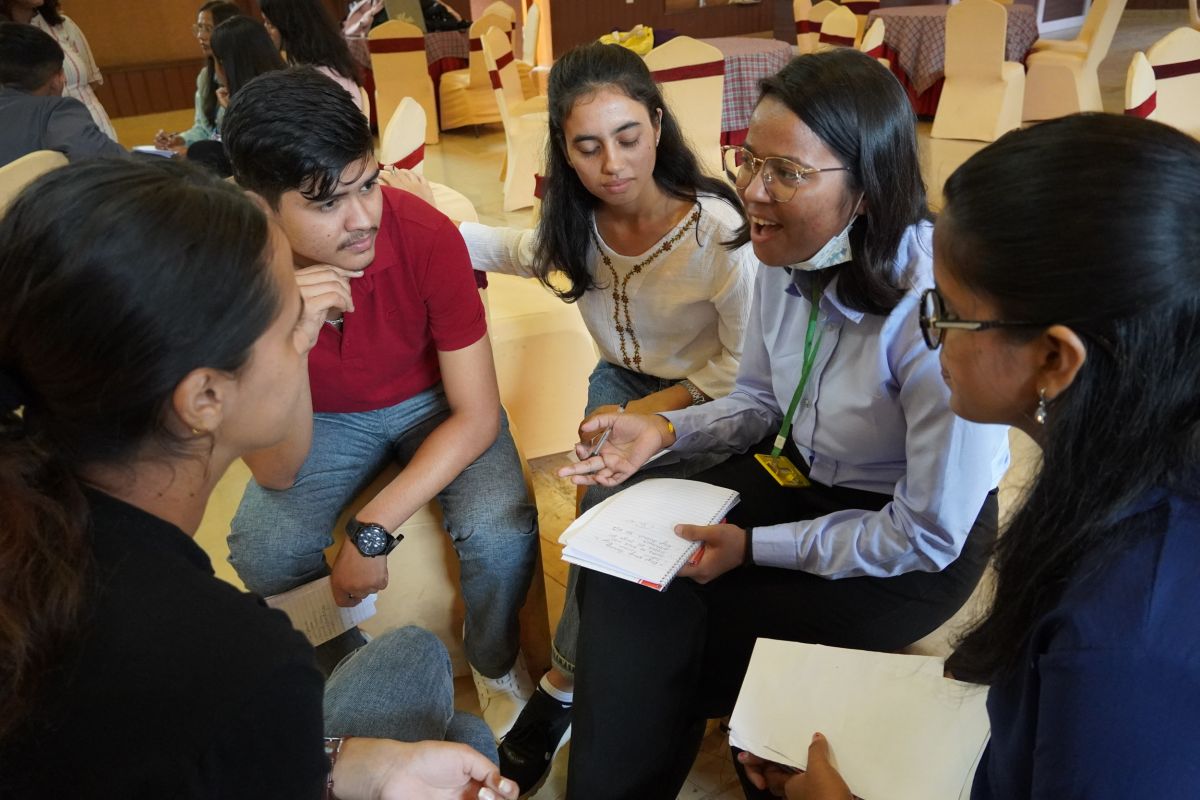
Advocating for change
The success of the accelerator program led the Female Foresters’ Network to launch a second phase in 2022, with support from RECOFTC Nepal and the Ministry of Forests and Environment. Another 40 women took part. This Team 40 included Reetu Deuba, who would later update her organization’s gender policy. The network now has more than 70 members. It has grown into a robust group of female foresters dedicated to addressing gender issues and creating a safe working environment.
“The network has begun participating in national level events, and issuing press releases about cases of discrimination and harassment in forestry-focused institutions,” says Shreyashi Bista, a Team 30 graduate who now facilitates activities for the network. “Prevalent but previously unreported problems are now being brought to light. Concerned authorities have started taking these issues seriously and acting on complaints they receive.”
Another graduate of the program, Sarita Lama, has been collaborating with RECOFTC Nepal to address gender issues at the community level. Lama is an assistant forest officer and gender focal point for the Kavrepalanchowk Division Forest Office, and has conducted gender sensitization training for the office’s field staff. Lama and her office also supported RECOFTC Nepal to implement its Grassroots Gender Leadership Development Program. This three-part pilot program, held between June 2022 and January 2023, trained 19 women who are members of different community forest user groups.
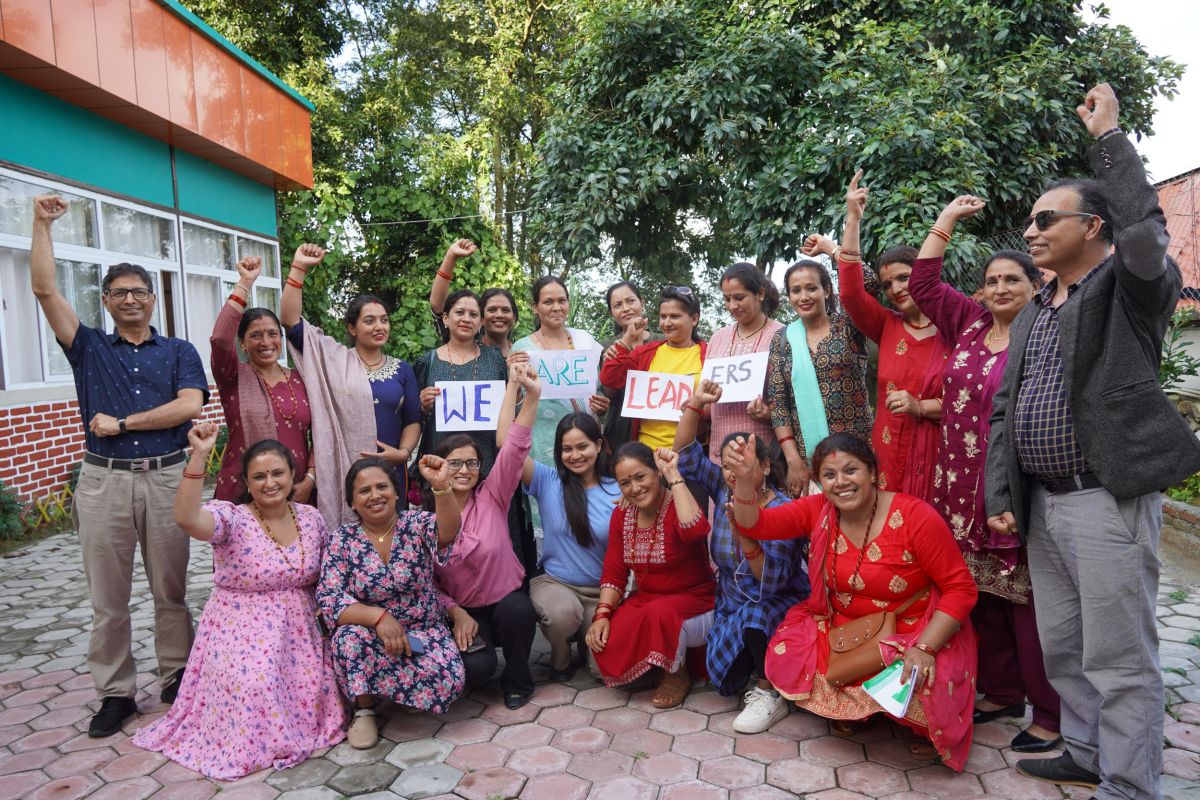
The training was designed to empower the women by giving them the skills they need to actively participate in the activities and decision-making process of their community forest users’ groups. Topics included gender sensitization, leadership, planning and communication skills, and knowledge for community forest management. The women also developed action plans to implement after the program ended. As a result of the training, the participants from Bhagwanthumki and Gosaikunda community forest users’ groups created women’s groups that successfully advocated for gender-specific budgets from local government for income-generating activities.
“As women depend on natural resources for their livelihoods, the gender-specific budget makes them more empowered to generate income on their own,” says Susmita Satyal, program officer at RECOFTC Nepal. “With this budget, they can plan for climate change adaptation through investment in various alternative livelihood options.”
A force for change
The recent initiatives by RECOFTC Nepal, and by the WAVES gender leaders and their trainees, have played an important role in raising awareness and fostering dialogue on gender issues within Nepal’s forestry sector.
The Female Foresters' Network has emerged as a force for change. It has empowered female foresters, nurturing leaders who are driving tangible transformations. From advocating for gender equality and raising awareness, to amending gender policies and initiating organizational changes, these women are having significant impacts.
“Gender inequality remains a huge challenge in Nepal,” says Satyal. “It limits women’s participation in Nepal’s community forests and curbs women’s professional development in forestry sector. But when women have the right skills and are empowered to take decisions, they can drive changes that promote gender equality in both professional settings and local communities.”
###
RECOFTC's work is made possible with the continuous support of the Swiss Agency for Development and Cooperation (SDC) and the Swedish International Development Cooperation Agency (Sida).



